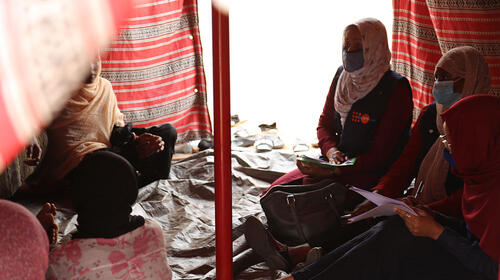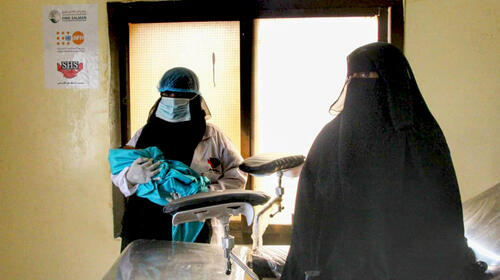- News
The future we want for women and girls
This year, global unity may seem a distant goal. But nothing could be further from the truth.
Read story- News
Midwives on the front lines working to reverse Afghanistan’s high maternal death rate
"Standing in the dark was a person asking for my help – a baby was being born,” Shirin said. It was the start of the greatest challenge she had ever faced as a midwife.
Read story- News
What we learn by listening to girls
Girls’ voices are seldom heard – not in the halls of governments, nor in homes or classrooms. But what do we learn when we finally listen?
Read story- News
Pandemic and rising tide of violence increase demand for mental health, psychosocial care
Fear, isolation, grief, economic stress and shuttered support services are taking a vast toll on the mental health of people around the world.
Read story- News
Flooding in Sudan leaves pregnant women, violence survivors stranded
Massive flooding in Sudan – the worst in 30 years – has created an ongoing humanitarian crisis, on top of the country’s existing COVID-19 health crisis.
Read story- News
A former child bride in Afghanistan finds hope and new life during COVID-19
Mahgul* vividly remembers the day she was engaged to be married. "I was 7," she said.
Read story- News
Reproductive health facilities resume life-saving work, but funding remains scarce
With limited funding coming in, UNFPA has been able to resume operations in some key health facilities across the country. But much more support is needed.
Read story- News
Progress towards gender equality at risk, say leaders at 25th anniversary of Beijing women’s conference
Yesterday, leaders at the United Nations commemorated the 25th anniversary of the historic Fourth World Conference on Women, when more than 30,000 activists and advocates convened in China to adopt a comprehensive…
Read story- News
Survivors of sexual violence need healing and justice even amid pandemic, leaders assert
Sexual and gender-based violence affects one in three women and girls globally. In some humanitarian settings, this figure is estimated to be two in three.
Read story







